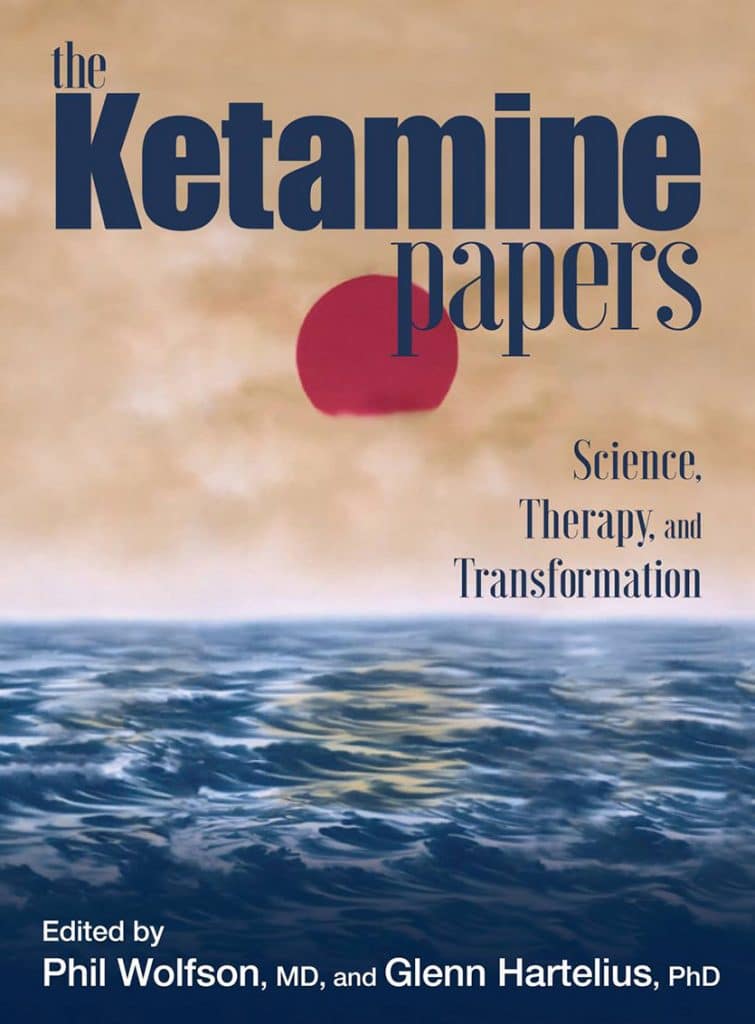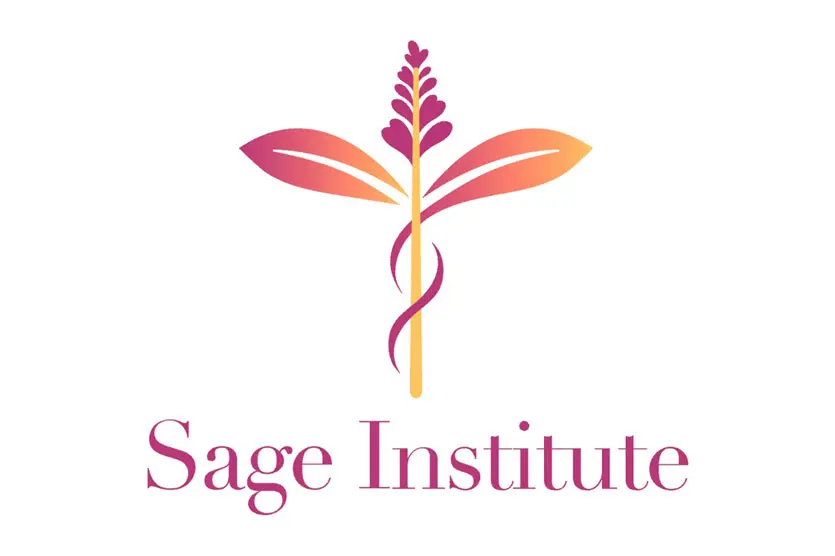Ketamine has been one of the most widely used anesthetics on the planet since the 1960s. So when Yale University School of Medicine researchers discovered in 2000 that ketamine could swiftly relieve symptoms of depression in some patients, numerous ketamine clinics sprang up offering treatments. Mental health experts and ketamine advocates, however, have warned against unscrupulous health centers that tout ketamine as a magic bullet for treatment-resistant depression, bipolar disorder, post-traumatic stress disorder (PTSD), and other diagnoses, without addressing integration, therapy or patient oversight.
Many people seeking ketamine therapy are enormously vulnerable, and have spent years struggling with serious mental health issues. Yet a 2019 investigation published in STAT revealed that “in many cases, clinics don’t have a psychiatrist or other mental health professional on staff, though they are working with challenging patients who haven’t responded to other treatments and may have suicidal thoughts.” Some clinics don’t even require that patients be under the care of a mental health professional. “When ketamine is wielded well, with appropriate guardrails and therapeutic alliances, it can be an incredible accelerator for healing,” says Lauren Taus, a clinical therapist who specializes in addiction and trauma treatment and offers ketamine-assisted therapy. “But ketamine is not a cure—it’s a tool, one that in my experience is most effective when it is wielded as part of a therapeutic process.”
The Hallmarks of a Good Ketamine Clinic: What to Look For
Mental health professionals on staff. Because ketamine originated as an anesthetic, some ketamine clinics are run by anesthesiologists or nurse practitioners. But depression, bipolar, PTSD and other mood disorders are serious mental health issues, even more serious if they’ve been treatment-resistant. The experts we spoke to recommended that mental health experts be included in all ketamine therapy treatment plans. Phil Wolfson, author of The Ketamine Papers, Director of the Center for Transformational Psychotherapy, and a pioneer in the world of ketamine-assisted psychotherapy, always includes a trained therapist and a medical doctor as part of ketamine treatments. Wolfson’s website cautions against ketamine therapy clinics that take an overly medicalized approach. Knowing how to administer an IV does not mean you know how to properly monitor how a patient’s brain is responding to ketamine.

If a patient is already working with a psychiatrist or therapist, clinics should collaborate with them. Dr. Cristina Cusin, co-director of a ketamine clinic at Massachusetts General Hospital and psychiatry professor at Harvard Medical School, told STAT that her patients are required to have a primary mental health provider to receive ketamine.
Dr. Gerald Sanacora, Professor of Psychiatry at Yale University and the Director of the Yale Depression Research Program, emphasizes strongly that ketamine needs to be one aspect of a larger treatment plan for depression. “Patients will call me up and say they don’t want any other medication or psychotherapy, they just want ketamine,” he told Yale Medicine. “I have to explain to them that it is very unlikely that a single dose, or even several doses of ketamine alone, will cure their depression.”
Read: Yes, Ketamine Addiction Is a Thing. Here’s What You Need to Know.
A thorough screening process and patient assessment.
The American Psychiatric Association strongly recommends that ketamine clinics assess any patient’s physical and mental health status before, during, and after treatment. But as there is no regulated standard of care for ketamine clinics, it’s up to patients to find ketamine therapy practitioners who do thorough screening.
How to Grow Shrooms Bundle
Take Both of Our Courses and Save $90!
Ethical clinicians will do a thorough pre-treatment evaluation, and take into consideration any medical, psychological or social factors that could affect the treatment. Same-day appointments are another giant red flag.
Realistic projections of the potential for improvement.
Like any drug or therapeutic intervention, the efficacy of ketamine therapy varies greatly, and there are no guarantees of success. Prospective patients should be wary of any clinic that promises results or offers a “cure” for their issues. The authors of a 2016 study published by Neuropsychopharmacology expressed concern that unethical providers could prey upon the pain suffered by many with treatment-resistant depression or other serious mental health problems by guaranteeing relief: “While there is strong evidence that treatment with ketamine can provide significant short-term benefits to a large proportion of individuals suffering from serious, disabling and potentially fatal mood disorders, the treatment has not yet undergone the test of larger-scale clinical trials to demonstrate the durability and safety of long-term treatment.” Simply put, there’s not enough existing data for ketamine clinics to make promises that ketamine will offer relief, and any clinic that does so should be regarded skeptically.
Yale researchers who have been working with ketamine for nearly two decades reported “dramatic” results: In several studies, more than half of the participants showed a significant decrease in depression symptoms after just 24 hours. But it’s important to recognize that 50% of the study subjects did not experience that same rapid decrease. Some subjects felt relief after several days, or several rounds of ketamine infusions, but some patients simply do not respond to ketamine therapy. Responsible clinics will be honest with prospective patients about the potential for success and failure, particularly when dealing with vulnerable people who are struggling with treatment-resistant mental health problems.
After the ketamine clinic: a plan for integration.
Look for a clinic that includes some type of integration as part of the ketamine treatment plan. While psychedelic integration means different things to different people, it can be defined as taking the time to glean the insights gained from a drug experience, processing those insights through journaling, meditation, or talking with mental health professionals or other supportive people in your life, and figuring out how to incorporate those shifts of the experience into daily living. As Juliana Mulligan, ibogaine treatment and integration specialist and Psychedelic Program Coordinator for the Center for Optimal Living, told DoubleBlind, integration is “about processing all the underlying emotional stuff that gets brought up by the psychedelic experience.”
“When ketamine is wielded well, with appropriate guardrails and therapeutic alliances, it can be an incredible accelerator for healing.”
Psychedelic experts see integration as a crucial aspect of the healing these experiences can bring about, and many leading mental health experts who’ve worked with ketamine feel the same way. Dr. Sanacora tells patients that the benefits of ketamine therapy can be much more sustainable as part of a comprehensive treatment plan; Dr. Cusin also cautions against ketamine clinics that see depression as a problem with an easy solution, rather than an ongoing process: “You don’t treat an advanced disease with just an infusion and a ‘see you next time.’ If [doctors] replace your knee but don’t do physical therapy, you don’t walk again.”

Both Lauren Taus and Dr. Wolfson emphasize the importance of integration in ketamine-assisted psychotherapy. The Sage Institute, a well-regarded psychedelic therapy center that offers ketamine as part of its services, requires patients to undergo several integration sessions with a therapist after receiving ketamine. The Sage Institute defines integration as a process that helps patients “bridge the highly significant experiences you have in psychedelic states with changes in your behavior, ways of thinking and perceiving, personality style, emotional patterns, relationships, as well as your values and worldview.”
Whether they label it integration, therapy or follow-up, ask whether the ketamine clinic you are considering has a plan for managing any issues or roadblocks that arise after treatment.
Ketamine Therapy Costs
Ketamine is expensive and rarely covered by health insurance (in part because it has not been FDA-approved to treat mental health conditions). Clinics charge anywhere from $350 to close to $1,000 per infusion, and many patients receive at least six rounds of infusions. And while there are movements afoot to make ketamine therapy more affordable to those who need it, the high cost is not only a major barrier to entry, but makes the stakes astronomically higher for those who actually access it.
Read: There are 3 Types of Ketamine—Which One Works Best?
Some professionals in the ketamine space warn against clinics that require patients to purchase multiple ketamine infusions at once, and argue that reputable clinics should charge for only one ketamine infusion at a time. Some clinics do allow for payment plans.
Ketamine Clinic Locations: How to Find a Ketamine Clinic Near Me
As Allegra Ringo noted in an Allure article about her experience with ketamine therapy, the process of locating a reliable ketamine clinic or therapist can be overwhelming—especially if you are dealing with other mental health problems. She advised readers to ask “non-depressed loved ones” for help with online research, emails, and calls.
DoubleBlind has compiled a non-exhaustive list of reputable clinics and practitioners, whose staff and patient care standards comply with the requirements we’ve listed above at the time of this writing.
Ketamine Clinic Bay Area
Oakland, California
San Anselmo, California
Ketamine Clinic Denver
Integrative Psychiatry Centers
Boulder, Colorado
Ketamine Clinic Los Angeles
California Center for Psychedelic Therapy
Los Angeles, California
Lauren Taus, Inbodied Life
Venice Beach, California
Dr. Jeffrey Becker
Los Angeles and Santa Barbara, California
Ketamine Clinic Chicago
Chicago, Illinois
Ketamine Clinic Portland
Ketamine Clinic Seattle
Seattle, Washington
Ketamine Clinic Michigan
Royal Oak, Michigan
Ann Arbor, Michigan
Ketamine Clinic New York
Brooklyn, New York
Ketamine can offer hope for people whose mental health issues seem insurmountable—but it’s more important than ever to make sure the ketamine clinic or therapist you work with operates with transparency, employs mental health experts, views ketamine therapy as a part of a larger treatment process, and treats you as an individual whose therapeutic journey matters.
Interested in having a psychedelic experience, but don't know where to start? Get our definitive guide on trusted legal retreat centers, clinical trials, therapists, and more.
We started DoubleBlind two years ago at a time when even the largest magazines and media companies were cutting staff and going out of business. At the time we made a commitment: we will never have a paywall, we will never rely on advertisers we don’t believe in to fund our reporting, and we will always be accessible via email and social media to support people for free on their journeys with plant medicines.
To help us do this, if you feel called and can afford it, we ask you to consider becoming a monthly member and supporting our work. In exchange, you'll receive a subscription to our print magazine, monthly calls with leading psychedelic experts, access to our psychedelic community, and much more.



